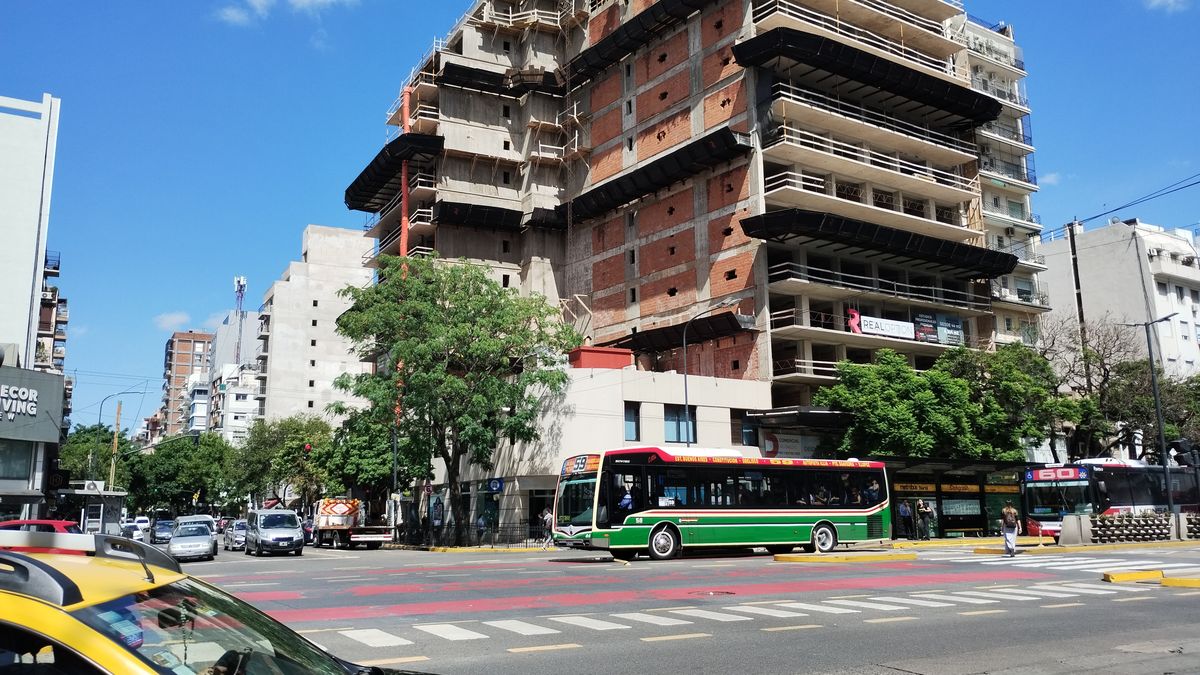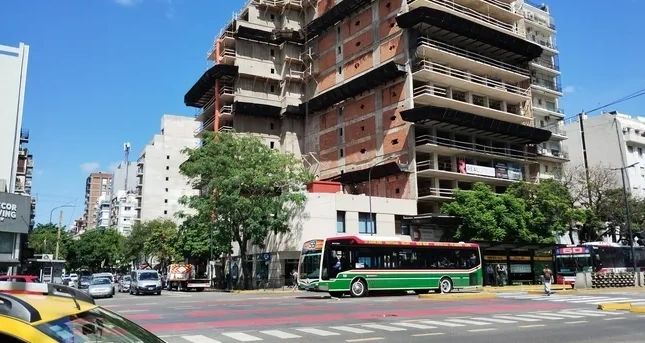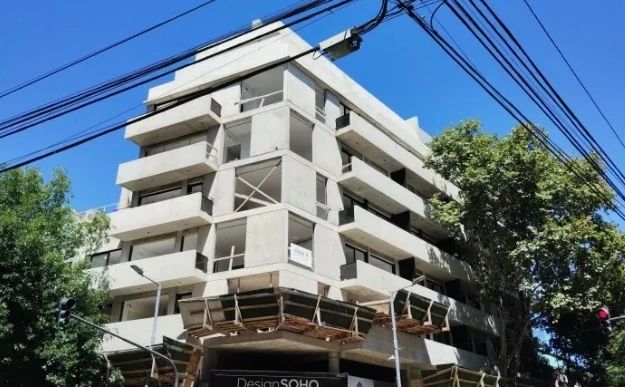BuySellBA
Administrator
The government regulated divisible mortgages for real estate projects: what the sector thinks - Ambito Financiero

Source:

 www.ambito.com
www.ambito.com
July 22, 2025
By José Luis Cieri

Construction underway in the Belgrano neighborhood; currently, more than 50,000 homes are under construction in Buenos Aires.
The national government formalized the new divisible (or future) mortgage regime with Joint Resolution 2/2025 of the Ministries of Economy and Justice, published in the Official Gazette this Wednesday. The measure seeks to expand mortgage credit, facilitate access to housing, and boost housing construction in a context of declining activity and financing difficulties ( with rising costs, today nothing falls below US$1,600 per square meter ).
The system will allow for the issuance of divisible mortgages on properties used in real estate projects, even before their formal subdivision. This will enable the granting of mortgage loans for the purchase of "as-built" properties or lots in planned developments, with conditions similar to those of a finished unit.
This new system seeks to address these restrictions. Buyers of an apartment under construction or a lot will be able to assume their mortgage on a specific portion, improving developers' financial predictability and expanding the base of solvent demand.
According to the official text, the measure aims to reduce the housing shortage and facilitate private financing for construction projects, amid high interest rates and a decline in new property sales.

Mortgages: changes were made to the Official Gazette.
The deed must include a precise description of the subdivision project and include documentation that guarantees the individualization of the units.
The established requirements include:
Furthermore, the regulations allow for the transfer, securitization, integration into financial trusts, and issuance of mortgage bonds on these loans, which could facilitate their placement in the capital market and allow for greater liquidity for the granting entities.
This will allow mortgage guarantees to be granted for projects that do not involve the purchase of land but rather the right to build on it for a specified period. The deeds must include plans or sketches signed by licensed professionals that precisely define the purpose of the right.
This seeks to provide greater legal certainty for transactions involving units not yet built or subdivided. Developers will be able to register these tickets in:
Each ticket will be recorded on a special folio linked to the actual folio of the property, reflecting assignments, liens, embargoes, or other restrictions.

A project near Uriarte and Gorriti, in Palermo, the neighborhood with the most construction in Buenos Aires.
The registration will be valid for five years, renewable at the request of the parties, and will expire upon the execution of the deed of transfer of ownership or by court order.
The real estate and financial sectors value the instrument's potential to regulate the pre-sale market and generate greater security for banks and investors. However, implementation challenges are noted, such as coordination between registries and training notaries and operators to apply the new system uniformly across all jurisdictions.
Damián Tabakman , president of the Chamber of Urban Developers (CEDU), said: "This will allow banks to finance buyers from the outset. We've been waiting for this for a while. Now we have to see if the banks activate specific lines for this. They should do it. We'll see."

Young couples could be the most likely to buy off the shelf and expect to receive a brand new home within a reasonable timeframe.
On the other hand, it allows property registries to record sales receipts for units (whether or not there is bank credit). "This helps prevent scams. There were developers who, in bad faith, sold the same unit multiple times, and this should prevent that. It's a good step forward. I'm told the Buenos Aires City property registry will implement it now. And this should be a model for other registries to follow," Tabakman added.
When asked who might benefit from the instrument, he said: "Young couples who can expect to receive their home in three or four years. But we still have to see what kind of operation the banks will put together. This came out today. We'll have to see which banks will take the plunge and how."
Santiago Levrio , institutional director of Alianza Urbana (which brings together SME developers and construction companies), warned that while the tool addresses legal and contractual issues, its adoption will depend on the macroeconomic context:
"The tool is beneficial because it unblocks a situation. But until the economy is monetized—that is, until the level of savings and investment increases— rates will remain high , and until rates remain high, there will be no banks offering products or borrowers. We must understand that this tool is for coverage, not for access to housing."
No one in the middle class is going to be able to afford a mortgage and rent at the same time. "This is for someone who already has the money and is looking for a hedge to make an investment," Levrio concluded.
www.buysellba.com

Source:

El Gobierno reglamentó las hipotecas divisibles para proyectos inmobiliarios: qué opina el sector
El Gobierno formalizó las condiciones para hipotecas divisibles en obras en construcción, buscando ampliar el crédito y facilitar el acceso a la vivienda.
July 22, 2025
By José Luis Cieri

Construction underway in the Belgrano neighborhood; currently, more than 50,000 homes are under construction in Buenos Aires.
The national government formalized the new divisible (or future) mortgage regime with Joint Resolution 2/2025 of the Ministries of Economy and Justice, published in the Official Gazette this Wednesday. The measure seeks to expand mortgage credit, facilitate access to housing, and boost housing construction in a context of declining activity and financing difficulties ( with rising costs, today nothing falls below US$1,600 per square meter ).
The system will allow for the issuance of divisible mortgages on properties used in real estate projects, even before their formal subdivision. This will enable the granting of mortgage loans for the purchase of "as-built" properties or lots in planned developments, with conditions similar to those of a finished unit.
The scheme is framed within Decree 1017/2024 ( which also eliminated the Procrear Act ), which established the legal basis for this instrument with the aim of stimulating credit and promoting new projects. The regulations, now published at a time when there are more than 50,000 units under construction in Buenos Aires, detail the procedures and requirements for formalizing these mortgages, which can be divided into parts linked to each functional unit or lot, allowing each buyer to assume their own mortgage debt.A system to expand credit
Until now, the lack of a divisible or future mortgage mechanism limited access to financing in the early stages of projects. In the traditional model, the developer had to take on debt for the entire project or wait for the completion of the project before buyers could obtain mortgage loans on the finished unit.This new system seeks to address these restrictions. Buyers of an apartment under construction or a lot will be able to assume their mortgage on a specific portion, improving developers' financial predictability and expanding the base of solvent demand.
According to the official text, the measure aims to reduce the housing shortage and facilitate private financing for construction projects, amid high interest rates and a decline in new property sales.

Mortgages: changes were made to the Official Gazette.
How the new regime will work
The regulations establish that a divisible mortgage may be established upon execution of the initial deed, provided that it provides for its future division when the property is subdivided. An existing mortgage may also be divided upon subdivision and transfer of units or lots to their respective purchasers.The deed must include a precise description of the subdivision project and include documentation that guarantees the individualization of the units.
The established requirements include:
- Ownership of the property free of liens or with liens recognized by the creditor.
- Approved urban development project that determines the subdivision modality, the number and characteristics of future units or lots.
- Consent of the parties to the division of the credit and the mortgage guarantee.
- Technical documentation such as survey plans, registration certificates, and tax debt statements.
Furthermore, the regulations allow for the transfer, securitization, integration into financial trusts, and issuance of mortgage bonds on these loans, which could facilitate their placement in the capital market and allow for greater liquidity for the granting entities.
Mortgage on the real right of surface
The resolution also regulates the possibility of establishing mortgages on the real estate right of surface, that is, on the ground level, the floor area, or the subsoil of a property.This will allow mortgage guarantees to be granted for projects that do not involve the purchase of land but rather the right to build on it for a specified period. The deeds must include plans or sketches signed by licensed professionals that precisely define the purpose of the right.
Purchase and sale ticket annotation system
Another notable development is the creation of a registry annotation system for bills of sale and contracts that promise the transfer of ownership or surface area over a property in the future.This seeks to provide greater legal certainty for transactions involving units not yet built or subdivided. Developers will be able to register these tickets in:
- The Provincial or City of Buenos Aires Real Estate Registries.
- Entities authorized by the National Securities Commission (CNV).
Each ticket will be recorded on a special folio linked to the actual folio of the property, reflecting assignments, liens, embargoes, or other restrictions.

A project near Uriarte and Gorriti, in Palermo, the neighborhood with the most construction in Buenos Aires.
The registration will be valid for five years, renewable at the request of the parties, and will expire upon the execution of the deed of transfer of ownership or by court order.
Procedure for subdivision and transfer
When the property is subdivided and units or lots are transferred:- The mortgage loan will be divided into parts linked to each fraction.
- The deed must state the debt balance of each purchaser and their payment terms.
- The creditor must agree to the division of the credit and release the original owner from the debts assumed by each buyer.
- The mortgage on units with no outstanding balance may also be released.
Role of the National Securities Commission
The CNV will be responsible for authorizing entities authorized to register tickets and contracts. It will publish and update the list of these entities and establish the technical requirements for registration.Coordination and control
Implementation of the regulations will require coordination between the Ministry of Economy, the Ministry of Justice, the provinces, and the Autonomous City of Buenos Aires. The Secretariat of Public Works and the Undersecretariat of Registry Affairs will coordinate with local registries to ensure uniform application of the regime.Industry perspectives and opinions
The government hopes the measure will incentivize private construction, facilitate financing for early-stage projects, and expand the supply of housing with mortgage loans.The real estate and financial sectors value the instrument's potential to regulate the pre-sale market and generate greater security for banks and investors. However, implementation challenges are noted, such as coordination between registries and training notaries and operators to apply the new system uniformly across all jurisdictions.
Industry Opinions
The regulation raised expectations in the real estate market, which recognized the instrument's potential but warned of implementation challenges and the need for specific credit lines.Damián Tabakman , president of the Chamber of Urban Developers (CEDU), said: "This will allow banks to finance buyers from the outset. We've been waiting for this for a while. Now we have to see if the banks activate specific lines for this. They should do it. We'll see."

Young couples could be the most likely to buy off the shelf and expect to receive a brand new home within a reasonable timeframe.
On the other hand, it allows property registries to record sales receipts for units (whether or not there is bank credit). "This helps prevent scams. There were developers who, in bad faith, sold the same unit multiple times, and this should prevent that. It's a good step forward. I'm told the Buenos Aires City property registry will implement it now. And this should be a model for other registries to follow," Tabakman added.
When asked who might benefit from the instrument, he said: "Young couples who can expect to receive their home in three or four years. But we still have to see what kind of operation the banks will put together. This came out today. We'll have to see which banks will take the plunge and how."
Santiago Levrio , institutional director of Alianza Urbana (which brings together SME developers and construction companies), warned that while the tool addresses legal and contractual issues, its adoption will depend on the macroeconomic context:
"The tool is beneficial because it unblocks a situation. But until the economy is monetized—that is, until the level of savings and investment increases— rates will remain high , and until rates remain high, there will be no banks offering products or borrowers. We must understand that this tool is for coverage, not for access to housing."
No one in the middle class is going to be able to afford a mortgage and rent at the same time. "This is for someone who already has the money and is looking for a hedge to make an investment," Levrio concluded.
www.buysellba.com

